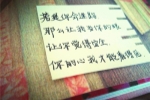
作文优美句子及出处【一】
改写句子练习题(5月12日)
一、照样子,把下面的句子换种表达方式。二、照样子,改写句子。B、改成"被"字句例:你走得越远,不是越到不了楚国吗?例:蒲公英的花可以张开、合上。1、水珠四射把小宝塔洗得一尘不染。
你走得越远,就越到不了楚国。蒲公英的花就像我们的手掌,可以张开、合上。
1.马跑得越快,离楚国不是越远了吗?1.一棵高大的橡树挺立在路旁。2、突然而至的大雨淋湿了同学们的衣服。
2.羊已经丢了,还修羊圈干什么?2.翠鸟背上的羽毛非常漂亮。3、我国人民全力抗击"非典","非典"疫情得到有效制止。
3.把杨桃画成了五角星,有什么好笑呢?4.我们难道不应该回报父母对我们的爱吗?5.那么多星星,你怎么能数得清呢?6.这么远,箭哪能射得到呢?
7.这难道不是天下奇观吗?
8.这个道理,不是很容易理解吗?
9.让她去做不正合适吗?
例:这恰好表明有数不尽的骆驼。这不恰好表明有数不尽的骆驼吗?
1.地球就是我们共有的家园。2.翠鸟漂亮机灵,我们很喜欢它。3.认真学习正是好学生的表现。4.羊已经丢了,不用修羊圈了。5.女娲很难过。6.你带的盘缠越多,就越到不了楚国。
3.李华向终点冲去。
4.落叶在树林中飞舞。
三、扩句1、花儿散发着清香。2、同学参加文艺晚会。3、我看《小学生日报》。4、邮票寄托着感情。5、大熊猫团团和圆圆咀嚼竹叶。6、达尔文搜集昆虫。四、按要求改写句子A、改成"把"字句1、在我的请求下,总算留住了一片洁白的雪地。2、武松用尽了力气按住那只大虫。3、清洁工人清理掉一堆堆的垃圾。4、森林爷爷战胜了一个又一个的妖魔。4、一夜东风,吹开了满树繁花。
五、把下面的陈述句改成反问句,反问句改成陈述句。1、我们的战士是可爱的。2、他的话真使我感动。3、除了你,谁能为我遮挡雨水?4、不耕耘怎么有收获?5、实现四个现代化,难道不上全国人民的伟大历史任务吗?
六、3、练习:选择下面的关联词语,填在句子中。
既??又??因为??所以??只要??就??只有??才??虽然??但是??如果??就??即使??也??不但??而且??不仅??还??1、()从小学好本领,()更好地为国家建设出力。2、妈妈()工作,()参加进修学习。3、鲁迅()是伟大的文学家,()是伟大的思想家和革命家。4、()明天下雨,我们()要去探望李老师。
5、()长城是那样雄伟壮丽,()吸引了很多游客。
6、一滴水()很小很小,()无数滴水汇集起来,就可以形成江河湖海。8、不劳动,连棵花也养不活,这难道不是真理吗?2、每个人希望过丰衣足食的好日子。
()
9、随着山势,溪流时而宽,时而窄,时而缓,时而急,3、谁也不能否认这本书是何明的。
溪声也时时变换调子。()
7、()我的成绩在班级里名列前茅,()我不能骄傲。8、()这本书写得太精彩了,()我把这本书一连看了三遍。
9、做个好猎手()要枪法好,()要机智、勇敢。
10、()你每天坚持早锻炼,你的身体()素质会得到提高。
七、读句子,分别说说句中把什么比作了什么?
1、祖国的东沙、中沙、西沙和南沙群岛,就像一把珍珠撒在南海的海面上。
把________比作________2、夕阳之下,浪涛像顽皮的小孩似地跳跃不定。把________比作________
3、河马的一对下门牙,不是向上长的,而是向前平行探出,好像两把铲子一样。
把________比作________八、请写出下列句子所用的修辞方法。
1、几场春雨过后,许多鲜嫩的笋,成群地从土里探出头来。()
2、危楼高百尺,手可摘星辰。()
3、牛群吃草时非常专注,有时站立不动,仿佛正在思考着什么。()
4、一个麦穗儿,就是一个跳动的音符。()5、是谁又吹响了那欢快、柔美的麦哨?是田间玩耍的孩子们。()6、骆驼是沙漠之舟。()
7、兴安岭多会打扮自己呀:青衫作伴,白桦为裙,还穿着绣花鞋!()
10、在轻轻荡漾着的溪流的两岸,满是高过马头的野花,五彩缤纷,像织不完的锦缎那么绵延,像天边的霞光那么耀眼,像高空的彩虹那么绚烂。()11、生物真是人类的好老师啊!()12、不再胆怯的小白菊,慢慢地抬起它们的头。()13、你难道要违背人类的真理吗?()14、森林里的害虫大量繁殖,成群地向树木进攻,吃树叶,咬树根,钻树心。()15、像这样一条多灾多难的祸河,怎么能成为中华民族的“摇篮”呢?()16、有翠绿,有淡青,有金黄,也有火一般的红色。()17、太阳冲破了云霞,跳出了海面。()18、桂子花开,十里飘香。()19、他在呼唤什么?在呼唤和平。()20、桂林的山,像老人,像巨象,像骆驼,奇峰罗列,形态万千。()九、仿照例句写句子。例:幸福是什么?救灾战士说:“幸福就是从废墟中救出劫后余生的人们。”幸福是什么?医生说:幸福是什么?老师说:幸福是什么?我说:十、把下面的句子改为双重否定句。1、每个人都说自己的家乡好。
十一、把错乱排列的句子整理成一段通顺的话。(一)()当夜幕降临的时候,它像慈母用乳汁哺育婴儿一样滋润禾苗。()露珠的身体很小,生命也很短暂,但它却是不平凡的。()它白天隐身在空气中,夜晚无声地在黑暗中工作。()每当黎明到来的时候,它又最早睁开那不知疲倦的眼睛。()它默默地工作,又默默地逝去。(二)(小溪的两边,错落有致地分布着一个个小院落。(我的家住在江南的小镇里。(花香鸟语,潺潺流水,给小镇增添无限乐趣。(一条清澈的小溪从西方流向小镇中心,又默默地流去。(院落前后,随处可见一丛丛花草和一棵棵大树,那是鸟雀的天堂。十二、综合改错。(错别字、标点、语病共6处)。“六一”庆祝会上,宣读了优秀少先队员的名单,
特别发扬了刘华的先进事迹。听了这个消息,同学们纷纷向他庆祝,刘华十分激动极了,他表明自己的决心:
今后一定要再接再励,刻苦钻研,努力攀登科学高峰。
[
作文优美句子及出处【二】
]相关文章:1.小学语文句子改写
2.小学语文改写句子练习
3.小学语文六年级句子改写练习题及答案
4.关于改写句子的练习题
5.小升初语文改写句子练习题
6.照样子改写句子练习题
7.语文改写句子专项练习题
8.小升初语文句子改写练习题
9.改写句子题目及答案
10.按要求改写句子
作文优美句子及出处【三】
第三次课: 分词在句子中的用法
教学目标: 使学生初步了解及在句子使用分词
教学内容:
一、 动名词及不定式作业讲解
二、分词
现在分词和过去分词两种。
作为谓语,现在分词和be 一起构成进行时;过去分词和be一起构成被动语态,和have一起构成完成时。
例如:
I am reading a novel by Maupassant. 我正在看一本莫泊桑写的小说。(现在分词和be 一起表示主语正在进行的动作。)
Mr. Robinson has drunk five glasses of wine already. 鲁宾逊先生已经喝了五杯酒了。(过去分词和have 一起表示主语已经完成的动作。)
The gold fish bowl was broken by Xiao Tao just now. 金鱼缸刚才被小陶打破了。(过去分词和be 一起表示主语是动作的承受者。)
作为非谓语形式,分词可用作形容词和副词,在句子中充当定语、表语、补语和状语。但它仍保持动词的一般特征,可以有自己的宾语和状语。分词和自己的宾语、状语构成分词短语。 现在分词有一般式和完成式。它的一般式表示和谓语动词所表示的动作同时发生的行为或存在的状态;它的完成式(having + 过去分词)表示在谓语动词所表示的动作之前发生的动作或存在的状态。
现在分词有主动语态和被动语态(being + 过去分词。
过去分词只有一般式,表示在谓语动词所表示的动作之前发生的动作。过去分词(及物动词)本身可以表示被动的含义,因而没有别的被动形式。
例如:
Having failed three times, he didn’t want to try again. (=As he had failed three times, he didn’t want to try again. 他失败了三次,不想再干了。(having failed 表示发生在前的动作)
Walking along the sands, Crusoe saw in the sand the mark of a man’s foot. (=While he was walking along the sands, Crusoe? 克鲁索沿着沙滩走的时候,看见沙上有人的脚印。(walking 表示同时发生的动作)
The question being discussed seems important. (=The question is being discussed. It seems important. 正在讨论的问题似乎很重要。
The old days are gone. 旧时代一去不复返了。(gone 表示完成的状态)
I had my hair cut yesterday. 我昨天理发了。(cut 是及物动词的过去分词,表示“被人理发”。) 分词的否定形式是在分词短语前面加上not, never等否定词构成。
例如:
Not fearing the fire, the child touched and got a finger burnt. 小孩儿不知道怕火,用手去摸,把手指烫了。
Not knowing how to find the subway, I asked a policeman for help. 我不知道怎样找到地铁,就去找警察帮忙。
(一)现在分词和过去分词的区别
(1)在语态上现在分词表示主动的意思,表示它所修饰的人或物的行为;及物动词的过去分词表示被动的意思,表示它所修饰的人或物是动作的承受者。换言之,现在分词是它修饰
的成分所作出的动作,过去分词是它修饰的成分所承受的动作。
例如:
convincing facts 有说服力的事实 / convinced audience 被说服了的听众
the exploiting class 剥削阶级 / the exploited class被剥削阶级
a frightening dog一条让人害怕的狗 / a frightened dog一条被吓坏了的狗
driving gears主动齿轮 / driven gears从动齿轮
(2)在时间上,现在分词往往表示动作正在进行,过去分词表示动作已完成。
例如:
the rising sun (正在升起的太阳 / the risen sun(升起的太阳)
the falling rain(正在下的雨)/ the fallen leaves(落下的树叶)
stolen money(被盗的钱/偷来的钱)/ill-gotten wealth(不义之财)
a high-flying kite(高飞的风筝)
再看一些例子:
boiling water 沸腾的水/boiled water 开水/developing countries 发展中国家/developed countries 发达国家/an exciting story 令人激动的故事/ excited people 激动的人们
(2)在时间上,现在分词往往表示动作正在进行,过去分词表示动作已完成。
再看一些例子:
surprising news令人惊讶的消息/a surprised man受惊吓的人/an inspiring leader具有号召力的领袖/the inspired soldiers受到鼓舞的士兵/a delighted speech令人高兴的演说/the delighted audience(感到高兴的听众/a moving film动人的电影/the moved children受到感到的孩子们/a box containing tea装茶叶的盒子/the tea contained in a box装在盒里的茶叶/ falling snow正在下的雪/fallen snow box落在地上的雪
(3)做表语时的不同。现在分词做表语表示主语所具有的特征,意思是“令人如何”。过去分词多表示主语所处的状态,意思是“感到如何”。
例如:
His lecture is disappointing。I’m disappointed。他的演讲令人失望。我感到失望。
We are surprised to hear the news。The news is surprising。我们听到那消息吃了一惊。那消息令人吃惊。
The situation is encouraging。 We’re encouraged。形式使人鼓舞。我们感到鼓舞。
常用的还有:amusing/amused,astonishing/astonished,disappointing/disappointed,exciting/excited,frightening/frightened,interesting interested,moving/moved, relaxing/relaxed,satisfying/satisfied,shocking/shocked,surprising/surprised,terrifying/terrified,tiring/tired,worrying/worried等等。
(4)做状语的区别,分词短语在句中可做时间、原因、方式、伴随状语。现在分词的动作和谓语动作同时或几乎同时发生、意思是主动的。而过去分词的动作在谓语动作之前发生、意思是被动的。
例如:
Seeing nobody at home,she decided to leave them a note。看到没人在家,她决定给他们留个条。(主动意义,几乎同时
The secretary worked late into the night,preparing a speech for the president。秘书工作到晚上很晚,给总统准备一篇演说。(主动意义,同时
Tired of the noise,he closed the window。对噪音感到厌烦,所以他把窗户关上。(被动意义,
在谓语之前
Deeply moved,she thanked me again and again。她深深地受了感动,再三谢我。(被动意义,在谓语之前
Persuade by my mother,she gladly went there alone。在我母亲劝说下,她才高兴地独自去那里。(被动意义,在谓语之前
如果现在分词的动作在谓语动作之前发生,现在分词要用完成形式,但意思仍然是主动的。 例如:
Having watered the vegetables,they began to pick up the Apples。=After they had watered the vegetables,they began to pick up the apples。他们浇完了蔬菜之后就开始摘苹果。 Having finished the work,he packed his tools and left。完工后,他收拾起工具走了。 分词做状语时,前面可用连词或介词。
例如:
After eating my dinner quickly,I went to see Jim off。我赶快吃过晚饭就去给吉姆送行。 Though built before the Second World War,the engine is still in good condition。尽管是在二战以前建的,这引擎仍然处于良好状态。
Unless paying by credit card,please pay in cash。如果不用信用卡付款,请用现金付。 Tom will never do this unless compelled。汤姆永远也不会干这种事,除非被逼无奈。 She’s been quite different since coming back from America。从美国回来后,她大变了。
(二)用法
1.作定语。作定语的分词通常放在被修饰的名词之前。如果被修饰的词是something,anything,everything,nothing等,则分词放在这些词之后。分词短语通常放在被修饰的名词之后。
例如:
This is an interesting book。(=This is a book。It is interesting。这是一本有趣的书。
There is something interesting in the news。(=There is something in the news。 It is interesting。消息中有些有趣的事。
The man sitting by the window is our math teacher。(=The man who is sitting by the window is our math teacher。靠窗户坐着的那个人是我们的数学老师
The machine run by the old worker is made in Shanghai。(=The machine that is run by the old worker is made in Shanghai。那位老工人开的机器是上海造的。
Most of students singing were girls。(=Most of the students who were singing?唱歌的学生多数是女生。
Many of the villagers questioned refused to answer。(=Many of the villagers who were questioned?被问的许多村里人都拒绝。
注意:(1)分词作定语与动名词作定语的区别:
分词和它所修饰的名词有逻辑上的主、谓关系。动名词则没有这种关系,而表示它所修饰的词的用途或有关动作。
现在分词 动名词
A sleeping child(a child who is sleeping正在睡觉的孩子 A sleeping car(a car for sleeping卧车
A flying bird(a bird that is flying飞鸟 A flying course(a course for flying飞行课程
A swimming girl(a girl who is swimming游泳的女孩 A swimming pool(a pool for swimming游泳池
The running water(the water that is running流水 The running track(the track for running跑道 现在分词和它所修饰的名词都要重读,动名词所修饰的名词则不必重读。
(2)现在分词作定语时,它表示动作正在进行或与谓语动词所表示的动作同时发生(或差不多同时发生。
例如:
Who is the boy dancing over there?在那儿跳舞的少年是谁呀?
The girls swimming in the sea were in danger。 在海里游泳的姑娘们有危险。
如果两个动作在时间上有先后,一般不能用现在分词作定语,而往往用主从复合句结构。 例如:
The man who has gone to Shanghai will be back again。到上海去的那个人会回来的。
The teacher wants to talk to the students who smashed the windows。老师要找打破了窗子的那个学生谈话。
(3)be的现在分词being不能用作定语(可用作状语或被动语态中的助动词。表示这种概念时,也用主从复合句结构。
例如:
He has a brother who is a worker。他有一个当工人的兄弟。
2、作状语。分词和分词短语作状语时,可以表示时间、原因、行为方式等意义。表示时间和原因的分词短语相当于对应的状语从句。
例如:
Seeing the teacher entering the room,the students stood up。(=When the students saw the teacher entering the room,They stood up。学生们看见老师走进房间,都站了起来。 (时间
Heated,the Metal expands。 (=The metal expands if /when it is heated。金属受热而膨胀。(条件、时间
Being excited,I couldn’t go to sleep。(=As I was excited ,I couldn’t go to sleep。我兴奋得睡不着觉。(原因
Being a student,he was interested in sports。(=As he was a student,he was interested in sports。 他是个学生,所以对体育运动感兴趣。(原因
Inspired by Dr.Yang’s speech,Li Hua and his classmates decided to study physics harder。(=As they were inspired by Dr.Yang’s speech,Li Hua and his classmates decided to study physics harder。李华和他的同学们受到杨博士讲话的鼓舞,决定更加努力学习物理。 (原因 The children went away laughing。=The children went away。They laughed as they went。孩子们笑着走开了。(行为方式
The professor stood there,surrounded by many students。(=The professor stood there。He was surrounded by many students。教授站在那里,许多学生围着他。(行为方式
While reading the newspaper,father nodded from time to time。(=While he was reading the newspaper,father nodded from time to time。看报时,父亲不时地点头。(时间(分词前,可加表示时间的连词while或when。
3、作宾语补足语。
例如:
Can you get the machine going again?你能使机器再动起来吗?
You should have your hair cut。你该理发了。
I saw him coming last night。我昨天晚上看见他来了。
4、作表语。
例如:
The film is very moving。这部影片很感人。
Your homework is well done。你的作业做得好。
The visitors looked surprised.参观者看上去很惊讶。
The boys were seen walking on the grass。有人看见孩子们在草地上散步。
5、作句子独立成分(分词有自己的逻辑主语时,称为独立主格结构。)
例如:
Flags flying,the army men marched in the streets。旗帜飘扬,军队在街上行进。
All his ribs broken,he lay half dead。他的肋骨全部折断,半死不活地躺着。
分词(短语作状语时,其逻辑主语必须与句子的主语一致。如果不一致,必须用独立主格结构来表示,也就是在分词前面加上它的逻辑主语。
My wife had a long talk with Sally, explaining why she didn’t want the children to play together我妻子与莎莉谈了很长时间,解释她为什么不想让孩子们在一起玩。(现在分词explaining是句子主语my wife做的动作,它们之间是主动关系
Given more attention,the trees could have grown better。如果对这些树多关心一些,它们本来会长得更好。(过去分词given表示的动作是句子主语the trees承受的动作,它们之间是被动关系
We explored the caves,Peter acting as guide。我们到那山洞探险,彼得做向导。 (独立主格 The train having gone,we had to wait another day。分词短语做状语时,前面可以加上连词或介词,但是分词短语和句子之间不能用并列连词(如but,and,因为并列连词接的是两个并列成分,而分词短语只是全句的一个状语部分。分词和主句之间可用逗号。
例如:
误:Having been told many times,but he still couldn’t understand it。
正:He was told many times, but he still couldn’t understand it。
注意:(1)分词作状语时,逻辑主语即句子的主语;否则要用从句或独立主格结构来表示。 例如:
Looking out of the window,I saw lots of people there。(=When I looked out of the window,I saw lots of people there。
我往窗外一看,看见那儿有许多人。 (looking out of the window的逻辑主语,就是句子的主语I。
(2)在see,hear,watch,notice等动词后,用动词不定式作宾语补语,通常表示(强调动作从开始到结束的全过程。如果用现在分词作宾语补语,则通常表示动作正在进行。 例如:
We sat two hours and watched the teacher make the experiment。我们坐了两个小时,看老师做实验。(两小时一直在看老师做实验
We passed by the classroom and saw the teacher making the experiment。我们走过教室,看见老师在做实验。(只是在走过教宰的一刹那间,看见老师正存做实验
I saw him enter the room, unlock a drawer, take out a document, photograph it and put it back。我看见他走进房间,打开抽屉,拿出一份文件,拍了照又放回去(表示一个接一个的一系列动作的全过程时,用动词不定式。
作文优美句子及出处【四】
按要求改写句子知识点梳理
一、概述
按要求改写句子主要考查学生对句子结构的掌握以及用不同句型表达同一意思的能力。考查所涉及到的句子类型有一般疑问句、否定句、反意疑问句、选择疑问句、对划线部分提问、感叹句、保持原句意思、合并成一句、简单句和复合句之间的互换以及改为被动语态等。
二、解题时需注意的几个要点
1、时态:不同的时态相对应的助动词
一般现在时:谓语动词用原形(主语为第三人称单数时,动词加s或es,变否定句、疑问句时助动词为do或does)
一般过去时:谓语动词用过去式,变否定句、疑问句时助动词为did.
现在完成时:助动词have/has+动词的过去分词
过去完成时:助动词had+动词的过去分词
一般将来时:will/be going to +动词原形
过去将来时:would/was or were going to +动词原形
现在进行时:am/is/are+动词的现在分词
过去进行时:was/were+动词的现在分词
2、语态:主动语态变为被动语态的谓语结构
一般现在时:am/is/are+动词的过去分词
一般过去时:was/were+动词的过去分词
一般将来时:will be+动词的过去分词
情态动词:can/may/must/need等情态动词+be++动词的过去分词
3、改反意疑问句时注意hardly, never, seldom, few, little, no等词表达的是否定意义,变反意疑问句时用肯定形式。
4、在合并句子时,有些连词如not only…but also…, neither…nor…, either…or…是就近原则,连接两个主语时动词形式取决于与动词邻近的主语。而both…and…连接两个主语时,主语是复数。
5、简单句和复合句之间的互换常见的有:带有疑问词的宾语从句改为特殊疑问词+to+动词原形的不定式;结果状语从句so…that…改为enough to或too…to…的简单句。
6、保持原句意思改写句子时注意时态不变。
三、习题
练习一
1. We do our homework every evening. (改为否定句)
We _________ ________ our homework every evening. 对划线部分提问
________ ________ do they have a class meeting?
3. She could hardly understand this passage. (改为反意疑问句
She could hardly understand this passage, _________ __________?
4.The manager told him how to get useful information. (改为否定句
The manager _________ _________ him how to get useful information.
5. Tom’s sister can speak English and Japanese very well. (改为反意疑问句
Tom’s sister can speak English and Japanese very well, _________ _________?
对划线部分提问
_________ _________ he live twenty years ago?
7. Sam does some cleaning in the morning. (改为否定句
Sam _________ do _________ cleaning in the morning.
对划线部分提问
_________ _________ have the students worked on the survey?
9. Your father used to ride a bike. (改成反意问句)
Your father used to ride a bike, _______ ________? (对划线提问)
__________ ___________ the population of Germany?
11. Mr. Wang washes his car once a month. (改为一般疑问句)
Mr. Wang (对划线部分提问
will Susan come back from Athens?
13. My friends lost their way when they were traveling in Hong Kong. (改为一般疑问句
________ your friends ________ their way when they were traveling in Hong Kong?
14. 对划线部分提问
________ ________ has Yao Ming been in the Rocket Team?
15. She put the digital camera on the bed just now. (改为否定句
She _________ _________ the digital camera on the bed just now.
16. Mark's flown to Hainan Island for winter holidays. (改为反意疑问句
Mark's flown to Hainan Island for winter holidays, _________ _________?
(专辑. (划线部分提问
_________ did Super Girl Zhou Bichang _________ to Vienna?
18. I’ve already saved enough money to buy a new car. (改为否定句
I ________ saved enough money to buy a car ________.
19. Lily used to have long straight hair. (改为反意疑问句
Lily used to have long straight hair, ________ ________?
20. He has already been there .(改为一般疑问句
__________ he been there __________?
21.They decided that they wouldn't have the picnic because of the bad weather. (改为简单句
They decided __________ _________ have the picnic because of the bad
weather.
22. The English people hardly ever shake hands between the strangers .( 改为反意疑问句
The English people hardly ever shake hands between the strangers, __________ __________?
23. They grew some sunflowers in their garden last year.(改为否定句)
They __________ __________ any sunflowers in their garden last year.
24. Jane drinks milk every morning.(改为一般疑问句)
_________ Jane ___________ milk every morning? (就划线部分提问)
___________ map ___________ to Class 4?
26. You can choose only one of the two: a mini-TV or a DVD player. (改为选择疑问句
you want a mini-TV a DVD player?
27. That detective film is so amazing. (改为感叹句)
___________ ___________ amazing detective film!
28. He has some money left.(改成否定句)
He money left.
29. (划线部分提问)
do the members of the film society meet?
30. His mother knew why the little boy was unhappy all day. (改为一般疑问句
_______ his mother _______ why the boy was unhappy all day?
31. He looks very funny with that hat on. (改为感叹句
_______ _______ he looks with that hat on!. 对划线部分提问
_______ _______ they build this factory?
33. I have already finished the test paper.(改为否定句)
I ________ finished the test paper ________.
34. Johnson denied cheating in the competition.(改为反意疑问句)
Johnson denied cheating in the competition, ________ ________? (对划线部分提问) ________ ________ the story need to be funny?
36. Sam does some cleaning in the morning. (改为否定句
Sam _________ do _________ cleaning in the morning.
对划线部分提问 _________ _________ have the students worked on the survey?
38. (对划线部分提问) _________ _________ has he been a top fashion designer?
39. 对划线部分提问
________ ________ will they move into the new school?
40. to go to the People’s Square by underground. (对划线部分提问
________ _______ did it take you to go to the People’s Square by underground?
练习二:
1. Gold is less valuable than diamond. (保持句意不变
Gold is ________ ________ valuable as diamond.
2. He told the children to go and watch his tank of Ghost fish. (改为被动语态 The children ________ ________ to go and watch his tank of Ghost fish.
3. Unless I have a quiet room, I cannot do any work. (保持句意不变)
I cannot do any work ________ I _________ have a quiet room.
4. The manager arrived here a few minutes ago. (保持句意不变)
The manager has _________here ________ a few minutes.
5. They will send him to work in Japan for one year. (改为被动语态
He will ________ _________ to work in Japan for one year.
6. The words on the notice board are very small. I can’t see them clearly.(保持句子原意
The words on the notice board are small I can’t see them
clearly.
7. We can solve the problems with the help of the teacher. (改为被动语态 The problems can _________ _________ with the help of the teacher.
8. We can’t finish the work in such a short time. (保持原句意思
It’s _________ _________ us to finish the work in such a short time.
9. We must keep the noise under 50 dbs.(分贝(改成被动语态)
The noise must ________ _______ under 50 dbs here.
10. Mike doesn’t like classical music. Billy doesn’t either. (合并成一句) _________ Mike nor Billy __________ classical music.
11. The room is so dirty that we can’t live in it.(保持句意不变)
The room isn’t __________ _________ for us to live in.
12. No one knows when we will start tomorrow. (保持原句意思)
No one knows start tomorrow.
13. The Smiths will invite the professor to take part in the party. (改成被动语态 to take part in the party by the Smiths.
14. If you are not brave, you’ll lose your last chance.(保持原句意思)
you are ’ll lose your last chance.
15. They store much information in the computer. (改成被动语态
Much information ________ ________ in the computer.
16. Don’t throw rubbish here and there. Our teacher said to us. (合并为一句
Our teacher told us ________ ________ throw rubbish here and there.
17. If John doesn’t apologize for what he did, I will tell the teacher about his bad behavior.
(保持原句意思)
_______ John _______ for what he did, I will tell the teacher about his bad behavior.
18. I don't know where we can grow vegetables in the city. (改为简单句 I don't know _________ _________ grow vegetables in the city.
19. People used to enjoy themselves chatting on MSN when it worked well. (保持句意基本不变
People used to _________ a lot of _________ chatting on MSN when it worked well.
20. If you don’t improve your handwriting, you will lose marks in the exam. (合成同义句
You will lose marks in the exam ________ you ________ your handwriting.
21. To go fishing is fun. (句意不变 )
_____ is fun _____ ______ fishing.
22. Dick was so short that he couldn’t touch the top of the bookshelf.(保持句意基本不变)
Dick wasn’t __________ __________ to reach the top of the bookshelf.
23. “Can I borrow your bike for a while or not?”( 保持句意基本不变)
Tom asked his sister __________ he __________ borrow her bike or not for a while.
24. The couple couldn’t decide which flat they should choose at first. (保持原句意
思)
The couple couldn’t decide which flat at first.
25. Meaningless information is difficult for the little boy to remember. (保持原句意思)
is difficult for the little boy remember meaningless information.
26. People throw away millions of plastic bags in our city every day. (改成被动语态)
Millions of plastic bags away in our city.
27. She was so careless that she couldn’t find the mistakes in her test paper. (保持句意基本不变
She was _______ _______ to find the mistakes in her test paper.
28. We will hold the next Olympic Games in Beijing in 2008.(改为被动语态)
The next Olympic Games will _______ _______ in Beijing in 2008.
29. The elderly man pushed the birds into the river.(改为被动语态)
The birds ________ ________ into the river by the elderly man.
30. Dolphins are so clever that they can follow the instructions.(保持句意基本不变) Dolphins are ________ ________ to follow the instructions.
31. We can’t finish the work in such a short time. (保持原句意思
It’s _________ _________ us to finish the work in such a short time.
32. They invited the astronaut and his wife to the party on Christmas Eve.(改为被动语态
The astronaut and his wife _________ _________ to the party on Christmas Eve.
33. The little girl didn’t go to bed unless the grandmother told her a story. (保持句意基本不变
The little girl didn’t go to bed _________ the grandmother _________ tell her a story.
34. The plane is so big that it can carry 300 passengers at one time. (改为简单句)
The plane is big _________ _________ carry 300 passengers at one time.
35. Did they know the answer to the question? Ididn’t know… (合并为一句 I didn’t know ________ they had ________ the answer to the question.
Keys
练习一
1. don’t do 2. How often 3.could she 4.didn’t tell 5.can’t she
6.where did 7.doesn’t any 8.How long 9.didn’t he 10.What is
作文优美句子及出处【五】
②成熟是一种素质,一种源于心灵表于行动的素质;成熟是一种能力,一种自我约束自我管理的能力;成熟是一种态度,一种对任何事物都保持冷静的态度;成熟是一种心境,一种能看淡一切,万事淡如水的心境。
③包装是房子富丽堂皇的外壳,包装是丑妇手上绚丽的太阳伞,包装是模特在舞台上走出的一字猫步。
④责任感是诸葛孔明"鞠躬尽瘁,死而后已"写就的《出师表》,责任感是孔繁森离家别母血洒高原树立的公仆丰碑,责任感是贝多芬挑战人生超越自我谱写的《命运交响曲》。
⑤ 与人初遇时,幽默是最好的名片;与人有摩擦时,幽默是最灵的润滑剂;与人作别时,幽默是最超然的祝福。幽默使美的增光添彩,使丑的原形毕露。愿生活中的幽默多一点,因为它是一种素质,一种境界。我们需要幽默。
⑥内涵如纯净的水,虽至淡却有味;内涵如静静的莲,盛开却不招摇;内涵如高高的菩提,给 人以智慧的启迪。内涵如盛夏骄阳下的大树,为人铺排一地清凉;内涵如人生历程中的风景,无它相伴则旅程少趣……
⑦倾听春天的莺歌燕语,我们感受到生命的活力,意境的优美;倾听大海的潮起潮落,我们 感 受到激越的乐章和壮美的`境界;倾听长者的教诲,我们如坐春风;倾听朋友的诉说,我们感觉到友谊的可贵……
⑧赞美如顺风,吹起将要启航的白帆;赞美如明灯,照亮黑暗中摸索的路;赞美如暖阳,驱散人心头的寒冷;赞美如春雨,滋润出希望的嫩芽;赞美如彩虹,其美丽让人终生难忘…
⑨A是一座金字塔,是进取;B是两个连接在一起的心,是友谊;C是未满的月牙,是缺憾。X是人生的交叉路口,是选择;F是一根拐杖,是帮扶;H是互相牵着的手,是真情;W是崎岖的山路,是坎坷。0是一面镜子,让你认识自己;O是一只漂流圈,让弱者随波逐流一面敲响的战鼓,催强者奋勇前进;一块空地,让勤劳者自由地耕种五谷。
⑩ 理解是生活的太阳,她将给人们带来无尽的温暖。理解是生活的发动机,她将给人们带来无穷的力量;理解是生活的美酒,她将给人们带来醉人的芳香。
⑾①电视机--自以为拥有一切,但无论想炫耀什么,都得完全听从人的摆布。
②空调--只能在一个小的空间改变温度,却总以为自己能改变大气候。
③洗衣机--自以为能洗掉一切脏物,却只能洗去衣物的污垢。
④电冰箱--自以为能保鲜食品,但也只能有一定的期限。
⑤电冰箱――想制造冰天雪地,却不知外面世界仍然是盛夏烈日。
⑥电灯--如尼采一样自喻为太阳,却不能给人以温暖。
⑦电灯--自以为能照耀全世界,却只能照亮一个狭小的空间。
⑧收音机――内容丰富多彩,尽是他人辉煌。
⑿激情是灿烂的花朵,芳香四溢,沁人心脾。但若不精心培育,花儿就会枯萎。激情是跳荡的火焰,炽热鲜艳,令人陶醉。但若不添柴加煤,火焰就会熄灭。激情是茂盛的森林,郁郁葱葱,生机盎然。但若不保护管理,森林就会消失。
⒀ 生活中,我们需要崇高。有了它,我们就会摆脱平庸和空虚,甚至麻木。而且,一旦你有了这种认识,你就会发现崇高就在你的身边:它可能是一座山,让你感受巍峨;它可能是一只鸿雁,让你体味坚韧;它可能是一首交响乐,让你领悟激越;它可能是一幅书法,让你体验苍劲;它甚至可能就是一个人,让你理解伟大和纯粹。
⒁热爱是什么?热爱是风,热爱是雨。因为热爱,我们甘于淡泊宁静的日子;也因为热爱,我们敢于金戈铁马去,马革裹尸还。兴趣是什么?兴趣是帆,兴趣是浆。因为兴趣,我们甘于风餐露宿的生活;也因为兴趣,我们敢于九天揽月去,五洋捉鳖回。
⒂承诺不是湖面上的小船,自由,飘荡。承诺如同高山,它是生生不息的地球内心剧烈运动的结果,也是地球的骄傲。承诺不是田野上的小草,晃荡,摇摆。承诺如同鲜花,它是浑圆的籽分裂的代价,也是籽的骄傲。
⒃在人生旅程中,乐观者永远向前看,向前走,大步流星;悲观者永远向后看,原地停留甚至向后走,惊慌失措。正如:“乐观的人在被玫瑰刺伤后仍会说多美的花,悲观的人在看到刺时就会说多糟啊。
好了,这篇有关于写用的写景与状物优美句子|写作文用的写景与状物优美句子作文素材的文章,就为您介绍到这里











